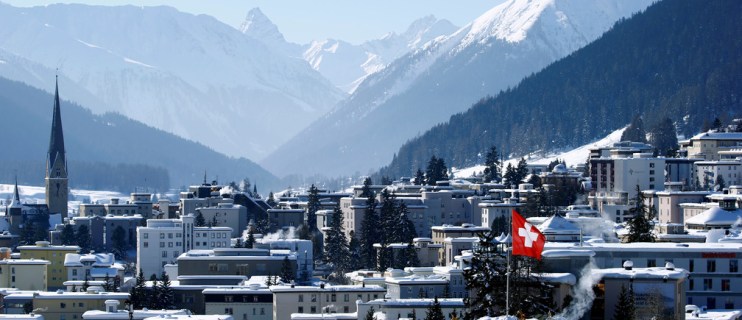Davos Diary: Day 1

by Paul Blanchard, founder and chairman of Right Angles
Davos. It sounds glamorous, exciting, a little bit mysterious. A small town, high in the Swiss Alps, once a year it becomes the global hub of politics and money, as the World Economic Forum pitches camp for its week-long annual summit. And this year, I’m here at the invitation of the Forum. It’s a fantastic opportunity and a fascinating experience for someone like me who is gripped by the human interaction of power, influence and outcomes.
So far, there’s been a lot of set-up and preparatory work. The official opening is today, and will be live-streamed. What’s impressed me already, though, just from the messaging being put out by the Forum and then seeing the event on site these past two days, has been the sense of mission and purpose. Davos is billed this year as “Stakeholders for a Cohesive and Sustainable World”, which I think sums up what those in attendance want to achieve. We all know the green agenda is important and more pressing with every day, but how do we put it into practice? How do we make it real? How do we face the challenges, instead of just shaking our heads in horror and despair?
No one should be in any doubt that Davos is a big deal. This year’s gathering will see 3,000 global leaders from nearly 120 countries assemble for the 50th anniversary of the Forum. 18 million people will follow the proceedings on social media, and there will be speeches by Donald Trump, Angela Merkel, the Prince of Wales, Greta Thunberg, David Miliband and Professor Dame Mary Beard: a pretty eclectic mix! This just shows the influence Davos has, the weight it can bring to bear on the world’s problems and the staggering breadth of its reach.
Not everyone can be persuaded. We learned today that the Iranian foreign minister, Mohammad Javad Zarif, had pulled out of a planned trip to Davos, citing last-minute agenda changes. It’s regrettable, because if the Forum proves anything, it proves that dialogue works. It’s an effective way of confronting and resolving global challenges.
But if you want to know what it’s really like, being here inside the cordon. It’s genuinely like nothing I’ve ever experienced. I’ve been to countless conferences, from the Labour Party’s annual seaside shindigs to the heavyweight SALT global leadership gatherings, but being an invited guest, being an insider, is game-changing. Suddenly you’re part of the play, you’re involved. You are, to quote the banner of the conference, a stakeholder.
It’s also surprisingly intimate. I’ve been here a couple of days now, finding my way round in the icy cold (my iPhone showed me it was -14℃ at one point, possibly the coldest I’ve ever been) and meeting the people who run the Forum, as well as some of the early arrivals among the guests, and there’s a sense of camaraderie, of everyone being in the same boat, of a shared experience.
I’ve already seen Rainn Wilson and Dianna Cowern—I’m a huge fan of both—and their presence emphasises the increasing importance of science to this traditionally economic-focused event. Rainn is here with an organisation called Arctic Basecamp, which promotes the importance of the Arctic and the dangers it is facing. Dianna is the brilliant “Physics Girl” who does amazing work to promote the public understanding of science on her YouTube channel, uploaded to PBS; she represents part of a real effort on the part of the Forum to increase engagement with young people. Being here, you really feel you’re engaging with these people, taking part in a dialogue and, yes, playing your part in making the world a better place.
Because Davos matters. In the past 50 years, it has organised the first Arab-Israeli business forum following the Yom Kippur War; it saw Hans-Dietrich Genscher make his famous plea for the West to reach out to the Soviet Union and hasten the end of the Cold War; and it was the scene for the signing of the 1988 Davos Declaration which averted all-out war between Greece and Turkey. It has consistently led the way on emerging trends—on détente, gender rights, environmentalism, consumer rights and industrialisation—and provided a laboratory in which new ideas can be tested and explored.
Already this year’s gathering has made the headlines. Kristalina Georgieva, the managing director of the IMF, said today that global economic growth would be “sluggish” and that social unrest was a contributing factor to toning down forecasts of a better future. It’s not the most encouraging message we could have had, but it’s one we needed to hear. This forum, this gathering of stakeholders, this dialogue, only works if people speak openly and honestly, and that’s what Dr Georgieva did.
So those are my first impressions of Davos and the Forum. I’ll be reporting back all week, and I hope to convey some sense of what really goes on at this remarkable conference. Until then, Tschau!